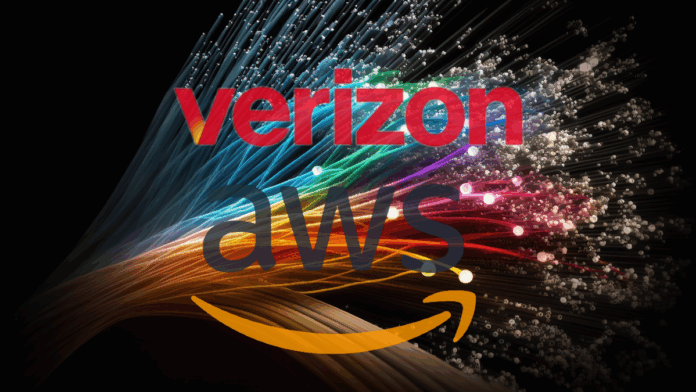The Verizon–AWS partnership expands long-haul fiber routes to meet AI’s surging bandwidth needs and strengthen Verizon’s AI Connect platform
In sum – what to know:
AI infrastructure convergence – Fiber expansion and AI workload growth are becoming inseparable, with network design increasingly driven by the data movement needs of generative and real-time inference models.
Programmable connectivity – Platforms like Verizon’s AI Connect blend fiber, edge compute, and 5G/mmWave assets to deliver dynamically scalable, low-latency paths between cloud cores and distributed AI endpoints.
Strategic capacity – Long-haul builds and hyperscaler partnerships extend network reach across metro and data-center corridors, positioning operators to meet AI’s 100× bandwidth and resiliency requirements.
Earlier this week, Verizon Business and Amazon Web Services (AWS) announced plans to build new long-haul, high-capacity fiber routes connecting AWS data centers — a move aimed at supporting the next wave of generative-AI workloads.
According to Verizon Business SVP and Chief Product Officer Scott Lawrence, the partnership is “yet another sign of the exponential growth of AI.” He told RCR Wireless News: “AI workloads require 10 to 100 times more bandwidth than traditional cloud services, and network traffic from AI is projected to grow dramatically through 2030. This deal is a significant commitment to enabling this data growth through network connectivity … [and] provides the foundational, high-capacity, low-latency connectivity between the core cloud and the edge, which is essential for enabling the scalable distribution of AI workloads, wherever they need to reside.”
The collaboration will also enhance the telco’s “AI Connect” solution, which delivers high-capacity fiber routes to support secure cloud services and advanced AI workloads. AI Connect combines Verizon’s programmable network, fiber, edge-compute, and 5G/mmWave assets to help hyperscalers and enterprises scale AI from model training to real-time inference with high-capacity, low-latency connectivity.
The partnership, however, is not just about AI — it’s part of Verizon’s broader infrastructure modernization, in which fiber is seen as a “critical component.” Verizon has indeed been laser-focused on fiber, with a standout data point being its $20 billion acquisition of Frontier Communications. The deal, which received the FCC green light in May, will expand its fiber footprint to 25 million premises across 31 states and Washington D.C.
Verizon’s current broadband strategy includes a fiber build-out pace of about 650,000 new Fios passings in 2025, and ultimately more than 1 million annual passings after the closing of the Frontier acquisition.
Lawrence said that new fiber capacity translates directly into enhanced performance and reliability for its customers’ advanced AI applications. He explained, too, that the long-haul fiber build is comprised of multiple segments designed to connect AWS data centers across multiple regions.
“AI is essential to the future of business, and the demands it places on the network are immense,” said Lawrence. “While this announcement is focused on our strengthened strategic relationship with AWS, we are building the AI infrastructure needed to meet the growing demands of AI workloads. This initiative is a significant commitment to that future.”

